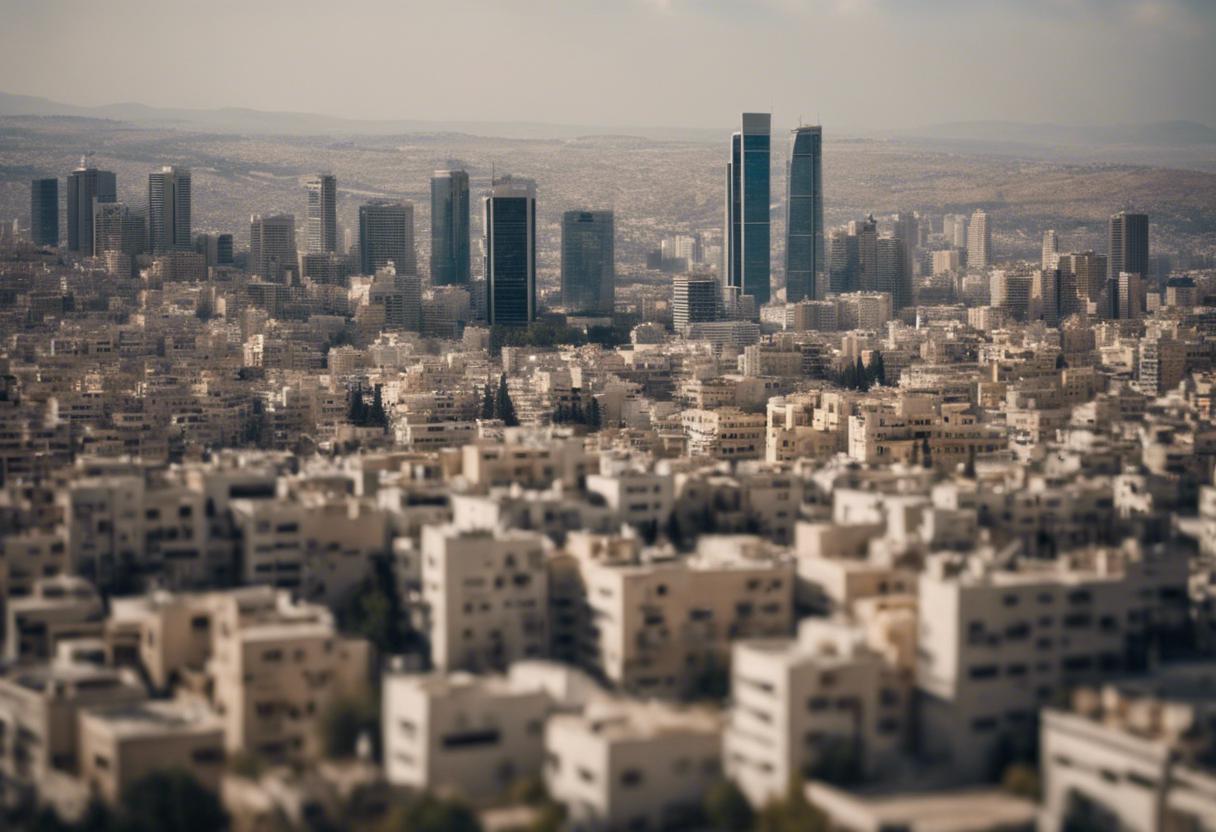Early on Saturday, Israel escalated its attacks on Hizbullah, with a barrage of air strikes hitting Beirut’s southern suburbs, following a significant assault on the command centre of the Iran-supported group, supposedly aimed at leader Hassan Nasrallah. In the early hours of Saturday, there were over 20 noted air strikes. As a result, thousands of Lebanese left their homes in the south suburbs, gathered in downtown Beirut, in parks, squares, and seaside zones.
“Sari, a man in his 30s, after escaping the suburbs post an Israel evacuation notice mentioned that he felt all of Dahiye was under threat. In Martyrs Square, Beirut, the displaced individuals tried to get some rest, laying mats on the ground.
Around 10 projectiles had crossed into Israeli territory from Lebanon on Saturday, announced Israel’s military. The projectiles, which were unidentified, were intercepted after sirens were heard in the Upper Galilee area.
Following Friday’s attack, an intensive assault on Beirut by Israel continued for consecutive 5 hours on Saturday. This was seen as a drastic elevation in the ongoing struggle that frequently exchanges missile and rocket fire between the two sides.
The recent escalation has elevated concerns over the conflict potentially spiralling out of control, drawing nation’s such as Hizbullah’s principal supporter, Iran, and the United States, into the mix.
There is currently no confirmation of Nasrallah’s condition post the heavy strikes on Friday. However, a source close to Hizbullah mentioned that Nasrallah was not contactable. No official statement has been made by the Lebanese armed group with regards to this.
Israel has not confirmed if Nasrallah was indeed the target of the attack, but announced that high-ranking Hizbullah officials were under target. When questioned about the successful assassination of Nasrallah on Friday, an Israeli official maintained that it was too early to confirm. However, a source affiliated with Hizbullah mentioned that Nasrallah remains alive, a claim that was corroborated by Iran’s Tasnim news agency. Further, a senior Iranian security official mentioned that Tehran is in the process of checking Nasrallah’s status.
As per an Israeli military statement, the Hizbullah’s missile unit commander, Muhammad Ali Ismail, and his deputy Hossein Ahmed Ismail were confirmed to be killed in the attack.
Prior to the most recent offensive, Binyamin Netanyahu, the Israeli Prime Minister, defended Israel’s right to carry on with the campaign to the United Nations (UN). He asserted that if Hizbullah continues on its warpath, Israel is left without an option and is entitled to neutralize this peril and guarantee the safe return of its people to their residences. Netanyahu’s address to the UN was not heard by numerous delegations as they had exited the room prior to his speech. He curtailed his visit to New York shortly after to return to his homeland.
In the wake of Friday’s initial assault, the fourth one in a week at Beirut’s Hizbullah ruled southern suburbs and the most damaging since the 2006 conflict, Lebanese medical officials verified that six lives had been lost and 91 people had been injured. The casualty rate was projected to surge ominously. Information on any possible victims of the subsequent bombings was unavailable. Over the previous week, strikes had led to over 700 fatalities, as per the authorities.
Al-Manar television, belonging to Hizbullah, broadcasted that seven structures had been decimated. According to security informants in Lebanon, the strike had been aimed at a zone habitually occupied by high-ranking officials from Hizbullah.
In the ensuing hours, warnings were given to inhabitants of certain areas in Beirut’s southern suburbs by the Israeli military to evacuate promptly as it was prepared to aim at missile launching sites and arsenals said to be concealed under civilian housing.
Hizbullah’s media office issued a statement rebuffing the claims that weaponry or armament stores were situated in any of the structures that were attacked in the Beirut suburbs.
Alaa al-Din Saeed, a local in an area identified as a target by Israel, revealed to Reuters that he was escaping with his spouse and their three offspring. He shared that they had learnt about the situation on TV, leading to enormous confusion within their neighbourhood. The family hastily gathered their clothes, identification documents, and some money; however, they found themselves entrapped amidst the heavy traffic clogged by others attempting to escape as well. Their current destination is the mountains, where they hope to manage for the night and formulate a plan for the following day.
This week alone, approximately 100,000 citizens of Lebanon have been forced to relocate, raising the total number of refugees within the country to over 200,000.
The government of Israel has declared that a key objective of this conflict is to enable the resettlement of some 70,000 displaced Israeli citizens.
Hizbullah launched numerous missiles and rockets at Israel, striking locations including Tel Aviv. Last Friday, the group confirmed it directed rockets at Safed, a city in northern Israel, resulting in minor injuries to a woman. Despite this, Israel’s air defence systems have largely kept the damage to a minimum.
Following Friday’s attack, Iran argued that Israel had crossed “red lines” and accused them of using US-manufactured “bunker-busting” explosives. However, Lloyd Austin, the US Defense Secretary, insisted that Washington had not been made aware of the strike beforehand, and President Joe Biden was continuously updated on the situation.
The escalating situation raised concerns at the UN General Assembly, where both France and the US suggested a ceasefire lasting 21 days. French Ambassador Nicolas de Riviere strongly advocated for an immediate cessation of the hostilities at a Security Council meeting.
In contrast, US Secretary of State Antony Blinken stressed the importance of diplomacy over conflict at a press conference in New York. He affirmed the US would persistently engage with all parties to encourage them to choose diplomacy.
Hizbullah instigated the most recent episode in this ongoing conflict. This came in direct response to the attack on Israel by the Palestinian militant group Hamas in Gaza on October 7th the previous year.

